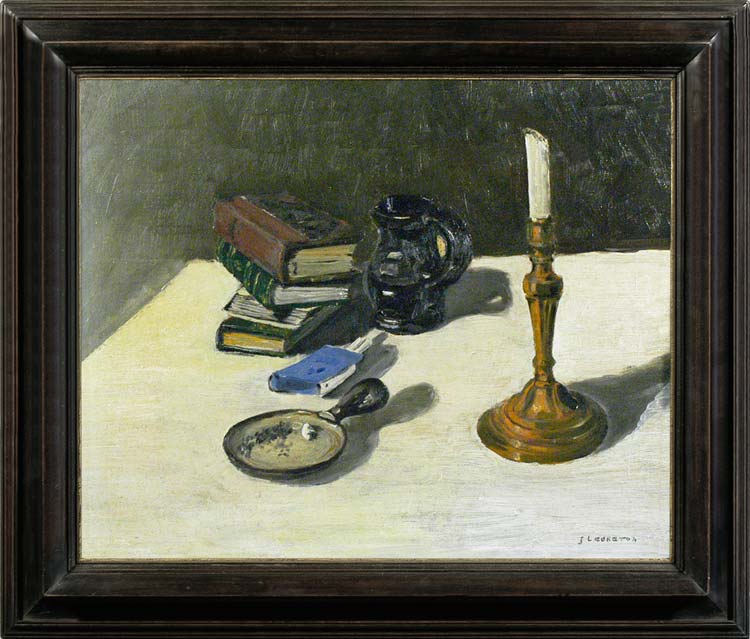This work is boldly realized in a very painterly style, with pronounced use of impasto, in which strong contrasts of light and shade are used to bring out the plasticity of the various objects and also to bind the composition together. The range of colours appears at first to be quite small – almost monochromatic with a few earth shades and the one brilliant note of cobalt blue; however, there is a subtly wider scale of harmonizing and complementary colours running through the whole. Lebreton was evidently as skilled in colour and design as he was in drawing. The glazed ashtray is particularly well painted.
Biographical details
There appear to be no records of a professional artist who worked under the name of J. Lebreton (20th Century); he or she may have been a part-time painter, who had some other type of week-day job or profession.
Possibly Lebreton is a descendent of Louis Lebreton, French (1818-66); a naval surgeon who produced watercolour sketches from his voyages, showing 25 of them at the 1841 Salon; he then sold them as illustrations in several periodicals. He also produced a body of c. 350 lithographs.
Or a relative of Constant Le Breton (b. 1895), artist and wood-engraver, who illustrated numerous books, including volumes of poetry by Baudelaire and Gerard de Nerval and works by Oscar Wilde and Voltaire. He exhibited at the Salon, and painted the portraits of Pétain and Derain.


